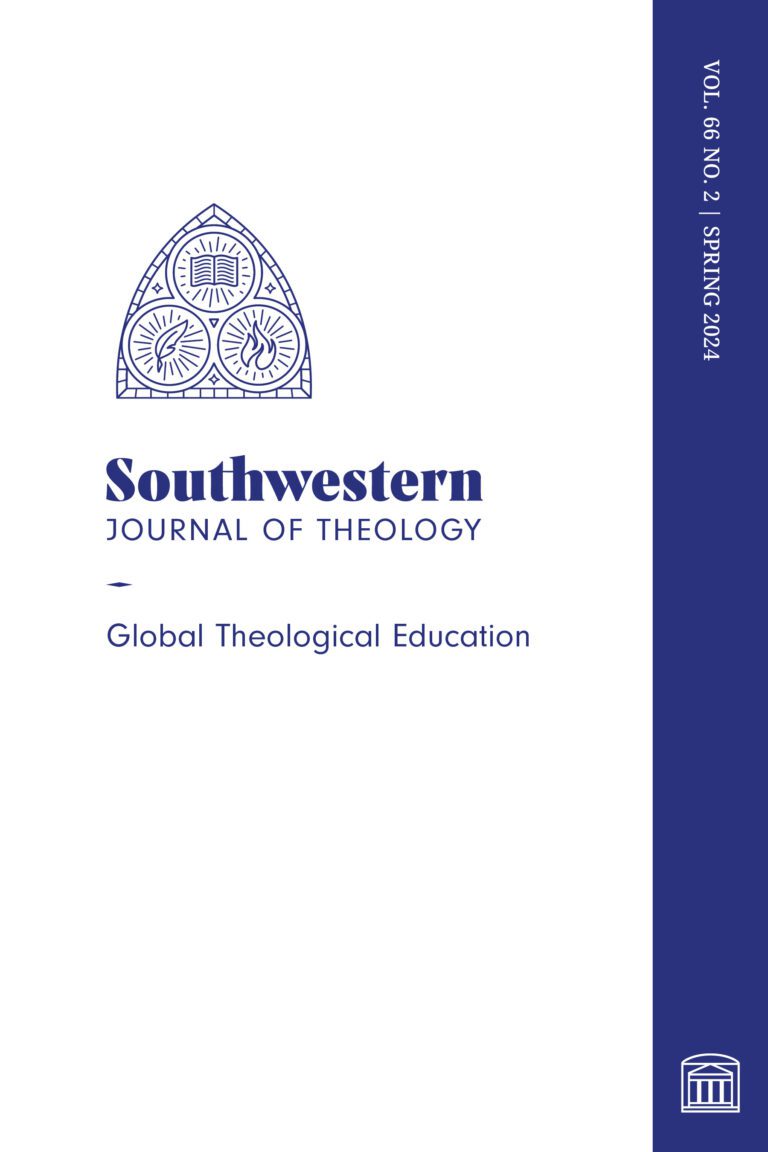
Global Theological Education
Southwestern Journal of Theology
Volume 66, No. 2 - Spring 2024
Editor: Malcolm B. Yarnell III
By Dongjin Park. Bellingham Lexham: Press, 2023, 239 pp., $29.99.
In the years since his death in 1981, considerable discussion has arisen regarding the pneumatology of the Welsh preacher and esteemed pastor of London’s Westminster Chapel, Martyn Lloyd-Jones. Dongjin Park’s volume offers a clarifying perspective on this complex topic. Essentially, Park argues that Lloyd-Jones’s doctrine of Spirit baptism was not derived from Pentecostalism with connections to the twentieth-century Charismatic movement but was rather an adaptation of the doctrine of assurance articulated by a distinct strand of Puritanism.
Following Michael Knowles’s foreword, which effectively introduces Lloyd-Jones and gives an overview of the book’s trajectory, the reader encounters nine chapters that coalesce to shed light on Lloyd-Jones’s preaching, writings, and theology of Spirit baptism. The chapters convey what amounts to a corrective historical reflection on his positions while underscoring the significance of the Spirit’s work in the church today.
Lloyd-Jones views the baptism of the Spirit as a subsequent experience distinct from regeneration. This subsequent experience gives the believer an unusual assurance of full salvation. According to Lloyd-Jones, Spirit baptism is a sovereign act of God that is repeatable and which brings both a preacher and his congregation a sense of authority. Additionally, he asserts that it is primarily connected with the empowerment of witness and service. Specifically, a preacher’s empowerment frequently is described as “unction” (3).
Park’s treatment of Reformed and Pentecostal perspectives and their similarities and differences with Lloyd-Jones’s understanding of Spirit baptism is illuminating. Convinced that a fundamental discrepancy exists between Lloyd-Jones and the Pentecostal understanding, Park argues that Lloyd-Jones’s doctrine should be considered a reappropriation of the old Reformed doctrines within the circumstances in which he lived.
Two chapters in this book are devoted to an identification of the factors which contributed to the development of Lloyd-Jones’s doctrine of Spirit baptism. After reviewing his upbringing as a Welsh Calvinistic Methodist, Park proceeds to highlight four other important factors in Lloyd-Jones’s development: his personal experience of baptism of the Spirit, his public experience of baptism of the Spirit in connection with his ministry, his interpretation of baptism with the Spirit in the New Testament, and the history and theology of revival in Britain and New England in the eighteenth century.
Focusing on the central elements of assurance of salvation and revival in Lloyd-Jones’s doctrine of Spirit baptism, Park asserts, based on an examination of Lloyd-Jones’s lectures and sermons, that these elements flow down from the Reformed tradition of the seventeenth to mid-nineteenth centuries. With reference to Lloyd-Jones’s understanding of genuine Christian preaching, Park observes it is entwined deeply with his doctrine of baptism with the Spirit. Genuine preaching should be “expository in methodology, doctrinal in content and experiential in goal” (175).
Ultimately, Park concludes that Lloyd-Jones’s doctrine of Spirit baptism was shaped by Puritan spirituality and Welsh revivalism as well as by his personal experience of the Holy Spirit. Perhaps one of the most pertinent implications from Lloyd-Jones’s perspective and ministry is a stress on the urgent need to expect and pray for the extraordinary work of the Holy Spirit in the life of the church and the ministry of preaching.





